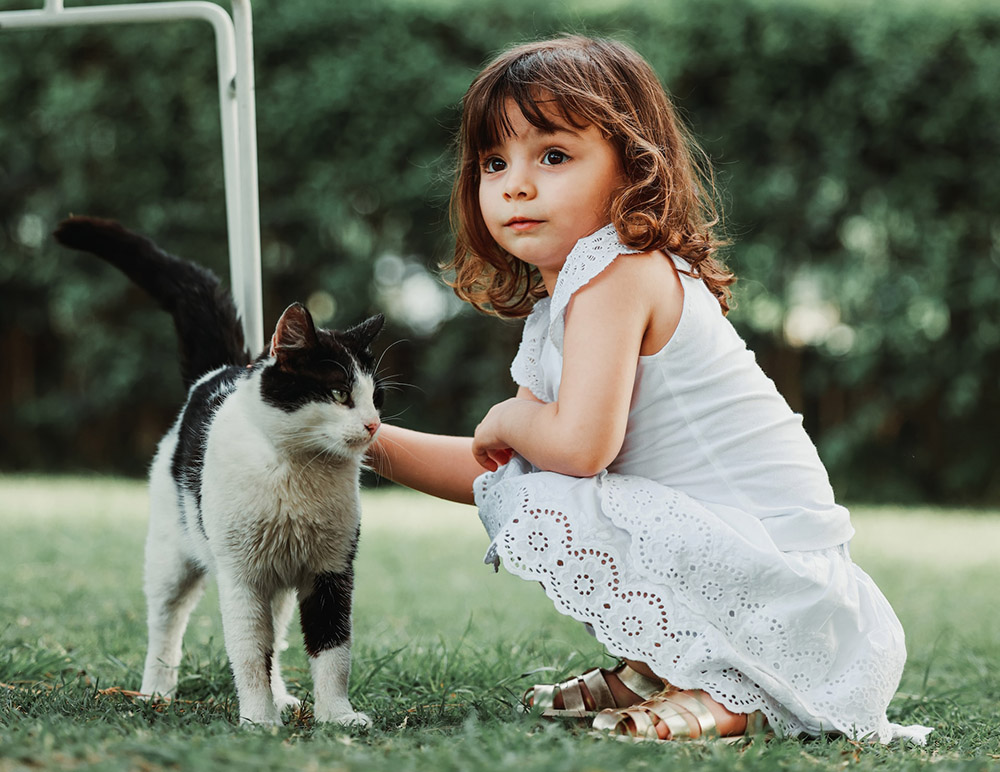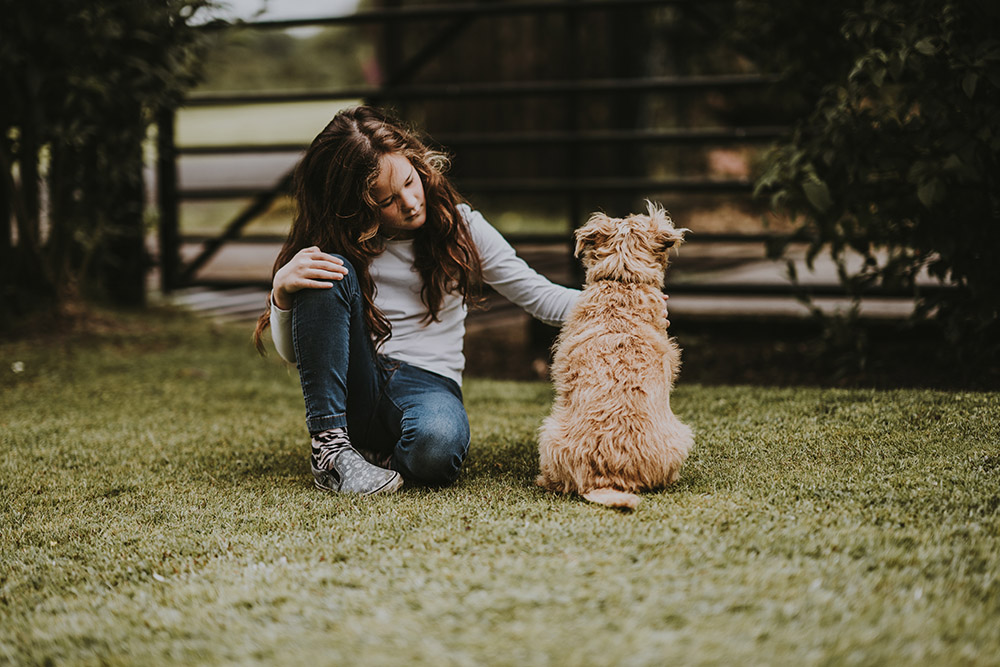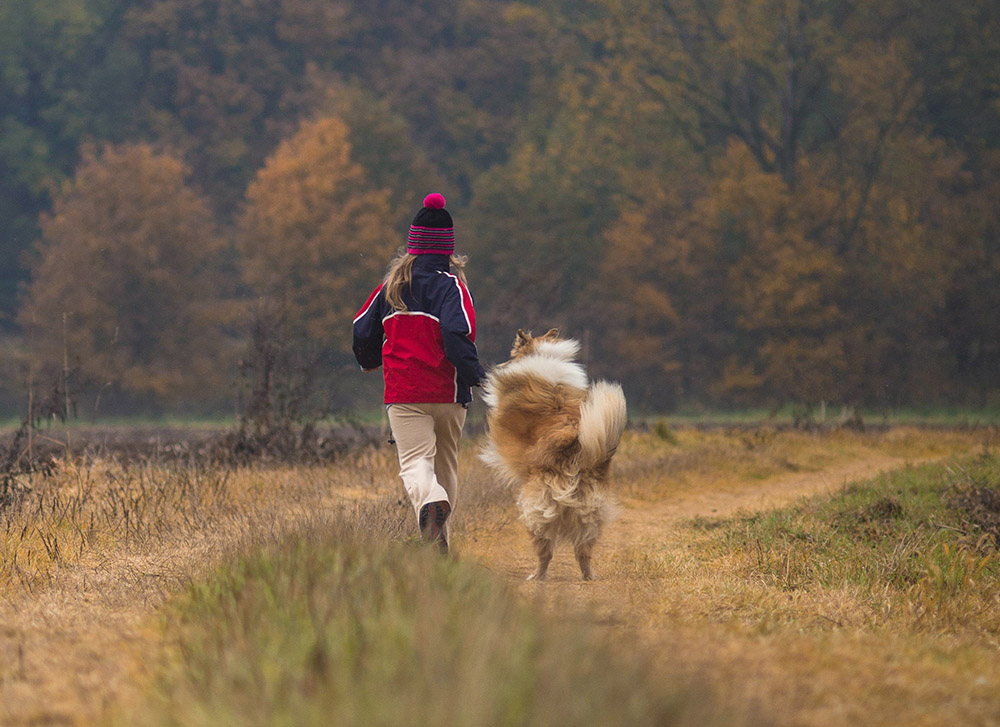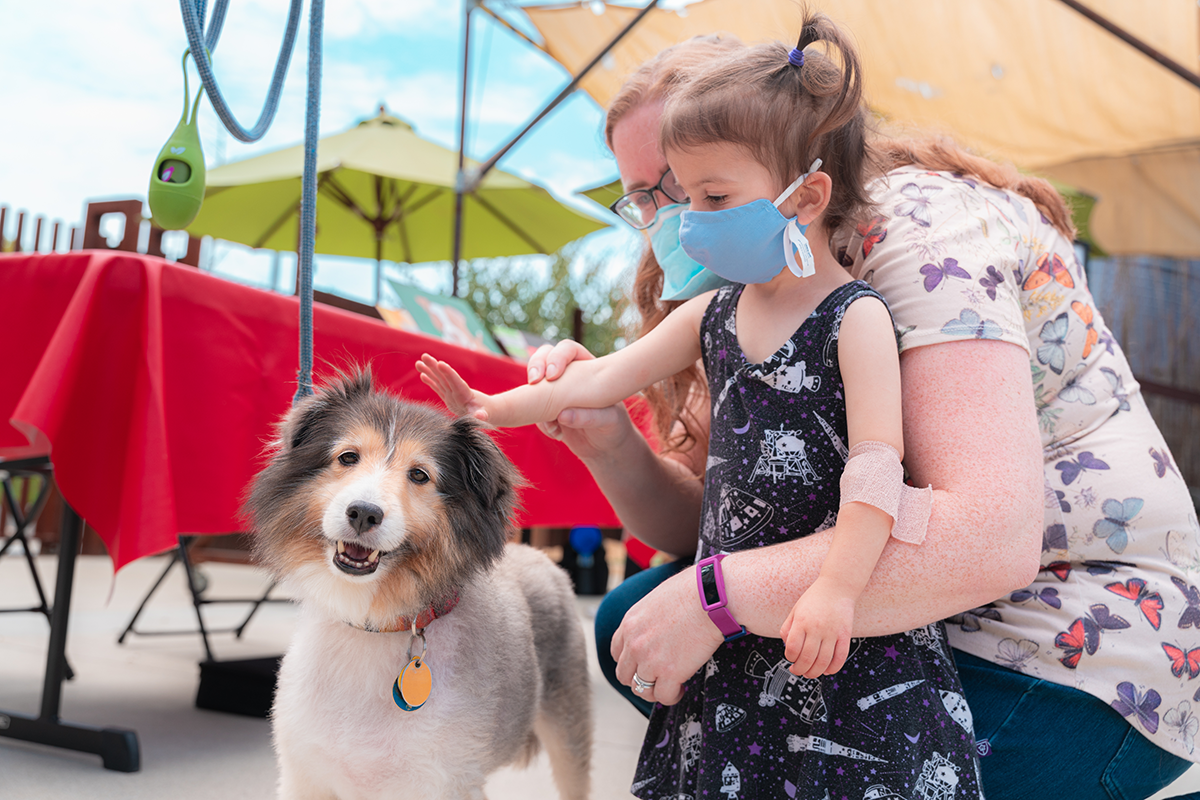by Leanne Davies
Getting a new pet is an exciting time for any household, but for families with children, it’s a particularly important moment. Having a furry companion can do wonders for a child’s development, with the benefits impacting their emotional wellbeing, social skills, and confidence. Let’s take a look at the key benefits of pets for child development.

1. Pets can provide emotional support
Researchers have found that kids often mention pets when they’re asked who they’d turn to for help with a problem. Naturally, pets can’t give children any direct help with their problems, but the comfort and reassurance they provide are vitally important in helping kids process their worries.
Sitting down to pet an animal can help kids practice mindfulness as they bring their awareness and attention to their furry friend and away from whatever is on their mind. Mindfulness helps to alleviate stress, both acutely and when practiced on a regular basis. Pets also provide love and acceptance that is unconditional. Compared to the support of humans, which can involve judgement and criticism, the unconditional support of a pet can help children to feel accepted and less alone.

2. Pets help kids learn responsibility and compassion
For many children, having a pet is their first opportunity to take care of another living thing. They can get involved in practical things like feeding, watering, exercising and bathing the animal, which helps them learn how to take on responsibilities. Learning how to nurture pets at a young age can help children understand how to nurture other humans.
The process of keeping another living creature’s needs in mind also helps to build empathy and compassion. It’s important for kids to learn how to consider the needs of others instead of being absorbed solely with themselves and their own needs. Plus, much of our ability to empathize comes down to our ability to identify and act on non-verbal signals. The process of looking and listening for non-verbal cues from pets, such as a dog whining at the door to go outside, teaches kids to look for non-verbal cues in humans.

3. Pets can help kids become more confident
Not all kids share the same levels of confidence. Research suggests that children with pets have greater self-esteem than those who don’t. There are several theories as to why. First of all, the responsibilities involved with caring for a pet can give children a sense of purpose and pride, which can boost their positive self-image.
Secondly, if pets boost empathy as explained above, it stands to reason that empathetic pet-owning kids can better connect and communicate with other humans. Good social skills can help children form bonds and interact easily with their peers, which can make them feel more confident. Finally, when kids feel emotionally supported by their pets, they may feel less worried about facing unfamiliar situations or people. This allows them to approach life with more confidence.
No matter if it’s a cat, dog, rodent, bird or reptile, a pet is a fantastic way to help children develop and grow into happy, kind and confident adults.
Author biography
Leanne Davies is a mother of two and pet trainer. She helps other families with their pet behavioral challenges. Leanne has been working with pets for over 10 years and has helped countless families get their furry friends back on track. She loves her work and takes great pride in it.

